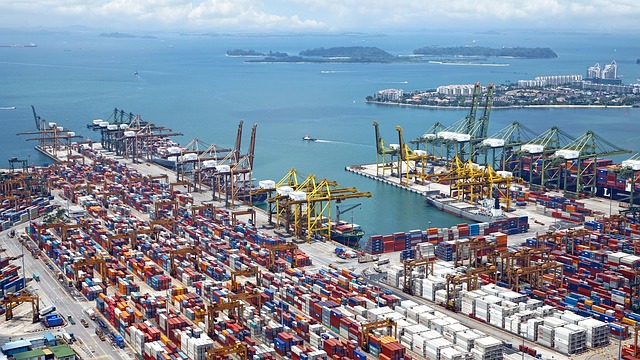Ocean transportation is an ancient practice. The trade of goods between nations and across seas is a century old occurrence. The idea of using some type of shipping container — be it sacks, bales, crates or barrels — to carry goods also dates back to ancient times. Now, fast forward to the present. Modern container shipping celebrated its 60th anniversary in 2016 and many buyers and sellers of goods utilize ocean transportation as their primary method to ship goods and services between countries.
The implementation of ocean freight shipping eventually led to a revolution in cargo transportation and international trade. Risks such as delays, pilfering, damage, and loss also decreased due to increased efficiencies and better tracking systems.
The History of Logistics
Procured from the Greek term logistikos, the word logistics’ initial application occurred in the military during World War II. The military referred to it as the activity of combining all means of transportation and sheltering of troops. As the war concluded, many U.S. businesses became cognizant of logistics and it’s importance in world commerce. The year 1960 marks the commencement of a period of logistics services for enterprises which continue to this present day.
Business enterprises commonly denote logistics as a multitude of activities that are following a specific sequence, also known as a supply chain. These activities include suppliers, manufacturers, distributors, and retailers.
The Importance of Logistics for Ocean Transportation
The implied purpose of logistics as it pertains to ocean transportation is to make the process of obtaining available goods, materials, and commodities easy from order to cost fulfillment to delivery. Thus, it involves improving the efficiency of flows regarding modes, terminals, routes, and scheduling. In addition, logistics provides the organizational support that is required to make a set of convoluted decisions concerning a multitude of issues such as transport modes, the location of suppliers, and the timing and sequencing of deliveries. Logistics is, therefore, a multidimensional value-added activity.
Ocean transportation has existed for centuries, however, with new technology, it’s capabilities and applications have soared. RTM Lines has led the industry for nearly 40 years, transported everything from an entire oil field of equipment to vintage Corvettes, shipping to nearly every port in the world.
World Commerce is dependant on the trans-ocean shipping services provided by carriers worldwide.

